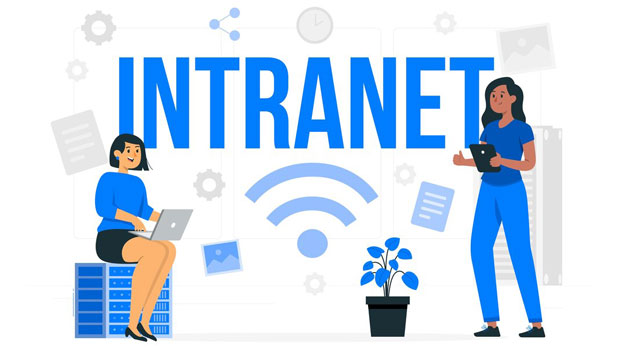In the current digital landscape, privacy and security have become top priorities for online users. Proxy services, such as Proxy Cheap, are widely used to mask IP addresses, bypass geographic restrictions, and ensure a safer browsing experience. However, one important question arises: Does Proxy Cheap service support multiple account logins? This article will delve into the capabilities of proxy services, the importance of using proxies with multiple accounts, and how Proxy Cheap handles this functionality. Through a comprehensive analysis, we will provide a deeper understanding of its features and the value it offers to its customers. Understanding Proxy Services and Their Core FunctionsTo fully grasp the issue at hand, it is essential first to understand what proxy services do and how they operate. A proxy server acts as an intermediary between a user's device and the internet. When you use a proxy, your internet traffic is routed through a third-party server, which changes your IP address and masks your online identity. This functionality helps maintain anonymity, access region-restricted content, and safeguard data from potential hackers.Proxy services are often employed for various use cases, such as:1. Privacy and Anonymity: By masking the user’s IP, proxies enhance online privacy and prevent websites from tracking your activities.2. Access to Restricted Content: Proxies can bypass geo-blocked content, allowing users to access services or websites that are otherwise unavailable in certain regions.3. Load Balancing and Performance: For businesses, proxies can help with load balancing, ensuring a smoother user experience by distributing network traffic evenly across multiple servers.4. Scraping and Data Harvesting: Proxies are also essential for web scraping, enabling users to collect data from websites without getting blocked due to high request volumes.Given these functionalities, proxies offer a wide range of benefits. However, when it comes to using proxies with multiple accounts, the dynamics change.Challenges of Using Proxies with Multiple AccountsManaging multiple accounts on a single platform or service is a common requirement for businesses, marketers, or individuals who need to operate several profiles simultaneously. Whether for social media management, ad campaigns, or data scraping, using proxies in such cases can help users maintain separate identities for each account without being flagged or banned.However, multiple account usage on a single platform can present several challenges:1. IP Blacklisting: If a service detects that multiple accounts are accessing its platform from the same IP address, it may flag the accounts for suspicious activity, potentially leading to account bans.2. Detection of Proxy Use: Many online platforms have sophisticated algorithms that detect the use of proxies, especially when users are managing multiple accounts.3. IP Rotation: For users who require frequent switching between accounts, IP rotation is crucial to prevent detection. However, not all proxy services provide sufficient IP diversity, which may hinder the ability to operate multiple accounts without triggering security measures.These challenges highlight the need for a proxy service that not only offers security and privacy but also accommodates multiple account management efficiently.Does Proxy Cheap Support Multiple Account Logins?Proxy Cheap, as a budget-friendly proxy service, offers various features that make it suitable for different user needs, including privacy and anonymity. However, when it comes to supporting multiple account logins, there are specific features and limitations to consider.1. IP Rotation and Diversity: One of the critical factors in using proxies for multiple account management is IP rotation. Proxy Cheap provides IP rotation functionality, which allows users to switch between different IP addresses. This feature is particularly useful when managing several accounts on the same platform, as it helps avoid detection from algorithms that track login patterns.2. Dedicated and Shared IP Options: Proxy Cheap offers both dedicated and shared IP options. Dedicated IPs are exclusive to a single user, providing a higher level of security and reducing the risk of being flagged by the service. Shared IPs, on the other hand, are used by multiple users, which can sometimes increase the risk of detection, but they are more affordable.3. Geolocation Flexibility: Proxy Cheap allows users to select IP addresses from various locations around the world. This geolocation flexibility is particularly important for users managing accounts in different regions, as it helps prevent geographic-based restrictions or bans.4. Speed and Reliability: While Proxy Cheap offers affordable pricing, the service does not compromise on speed. This is important for users managing multiple accounts that require smooth and efficient performance. High-speed proxies reduce latency, making it easier to perform tasks like account switching and login.Key Considerations When Using Proxy Cheap for Multiple AccountsWhile Proxy Cheap provides the necessary tools to support multiple account logins, there are several key considerations to keep in mind for optimal use:1. Account Management Policies of Platforms: Different platforms have different policies regarding multiple account management. Some platforms may allow multiple accounts as long as they are not linked to the same IP, while others may have stricter rules. It is essential to familiarize yourself with the terms and conditions of the platforms you intend to use to avoid account bans or suspensions.2. Proxy Quality and Performance: Not all proxies are equal in terms of performance. It is important to assess whether Proxy Cheap’s proxy pool is reliable enough to meet your needs, especially when managing multiple accounts simultaneously. Poor proxy performance can lead to slower connection speeds and failed login attempts.3. Customer Support and Assistance: When dealing with multiple accounts, issues such as account suspension or connectivity problems may arise. Having access to responsive customer support is crucial in resolving any problems quickly. Proxy Cheap offers customer support, but it’s important to ensure that their services meet your expectations for timely assistance.Conclusion: Is Proxy Cheap a Good Choice for Multiple Account Logins?In conclusion, Proxy Cheap does offer features that support multiple account logins, such as IP rotation, geolocation flexibility, and both dedicated and shared IP options. These features make it suitable for users who need to manage multiple accounts on various platforms. However, the effectiveness of Proxy Cheap for this purpose depends on the specific needs of the user and the platforms they are engaging with.For users who prioritize affordability and are not dealing with highly sensitive or high-risk activities, Proxy Cheap can be a good choice. However, for users requiring premium performance, additional security features, or a higher level of support, it might be worth considering other proxy services that offer more advanced features.By carefully evaluating your needs and the limitations of Proxy Cheap, you can make an informed decision about whether it is the right proxy service for managing multiple accounts.
Aug 11, 2025



































































